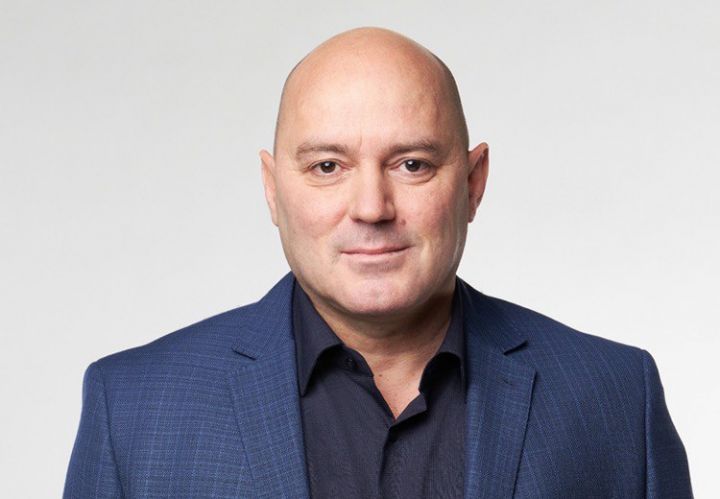General Director of Danone Ukraine: The Complimentary Model of “Grain Cultivation and Milk Production” Became Unprofitable During the War
The Danone Ukraine plant in Kherson was partially damaged because of military actions in the region. But the occupiers plan to start production there. Danone Ukraine General Director Adrian-Valentin Pascu said this in an interview.
We talked about the evacuation of employees from the Kherson factory, the restoration of the production line in Poltava region, the damage caused by the war, the change in the consumer attitudes of the population and the profitability of milk processing. The topic of the Russian assets of the Danone Group was also raised - will it continue to work in Russia?About Kherson assets and evacuation of employees
Latifundist: The company has a factory in Kherson. Was it affected by military actions and when the decision to stop the production was made?
Adrian-Valentin Pascu: The escalation of hostilities in Kherson happened quite quickly. Almost from the first days of the war, all work at the factory in Kherson was stopped for security reasons. At the beginning of March, several fermentation tanks and the roof of the administrative building were damaged. Then the occupation of the region began. We have prepared for the conservation of the plant. For some time, the Ukrainian authorities remained in Kherson, so we decided to distribute our products to the citizens of the city & region. With the help of the charity fund of Yuriy Rozhkov, it was possible to transfer more than 600 tons of manufactured products to cover the city needs. Traffic in the city was limited, there was a catastrophic lack of transport.
Then we agreed with the milk supply partners that they would provide transport and help deliver the products to those who needed them. Employees went to work on their own initiative and helped to deliver products to city hospitals and humanitarian centers. In that difficult time, we felt the power of unity more than ever. As soon as the local Ukrainian administration was replaced by the temporary occupation one, we lost control over the plant.
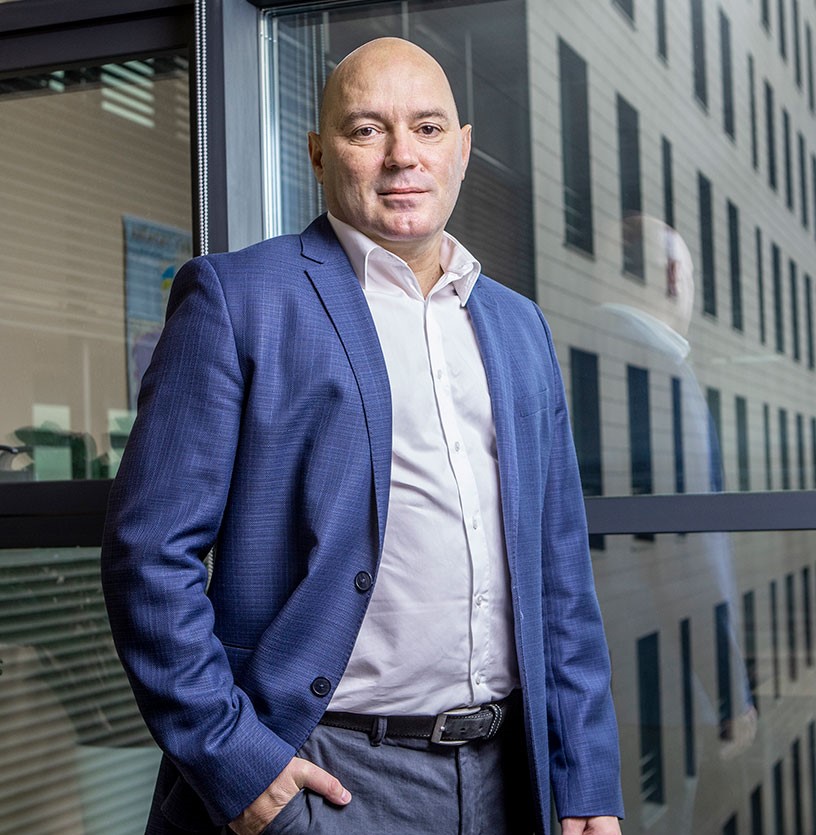
Latifundist.com: What is the current situation at the Kherson plant?
Adrian-Valentin Pascu: The security department staff are there to look after the assets and report us about the situation. We also received a proposal from the temporary occupation authorities to start the plant. Of course, we refused. Firstly, it is technically impossible. The plant was partially damaged because of hostilities. Secondly, the plant was conserved so that it would not pose a danger to the environment. Third, we will not start any production in the temporarily occupied territories. Only when Kherson returns to the control of Ukraine, we will do everything possible to resume work there. We know about the attempts of the occupiers to start the plant. Were the plant made partially operational by edict of the Provisional Occupation Administration, Danone cannot be responsible for the quality and processes that might be used, given the departure of most of the workforce and the damage to the plant itself. In that challenging circumstance, Danone would not stand by the company’s demanding food safety standards and thus considers it inconceivable to operate.
Latifundist.com: Were workers evacuated from Kherson?
Adrian-Valentin Pascu: Before the war, the factory employed about 400 workers. Thanks to the active economic ecosystem, we created another 1.5 thousand jobs in the region. Since safety was and remains our top priority as an employer, we have done everything possible to help people leave the city and area since hostilities began. The process was not easy. Several waves of evacuation were planned. The first waves were more massive. We met people and helped with settlement both in Ukraine and abroad. The last wave of evacuations took place under acute circumstances when the city and the region were declared closed. We managed to find certain safe routes and take out those who volunteered to leave the city. It hasn't been easy but staying in the city lately has been even harder. Especially when it comes to families with children who do not have the opportunity to purchase medicines and basic hygiene products.
Latifundist.com: Have many employees gone abroad?
Adrian-Valentin Pascu: The majority of Kherson employees continue to work in Ukraine. As an employer, we are still responsible for their welfare and provide social guarantees as far as possible under the current conditions. But at least the salary of all employees is paid as in pre-war times. There are also employees who decided to go abroad and are already successfully working in other divisions of the company in Europe.
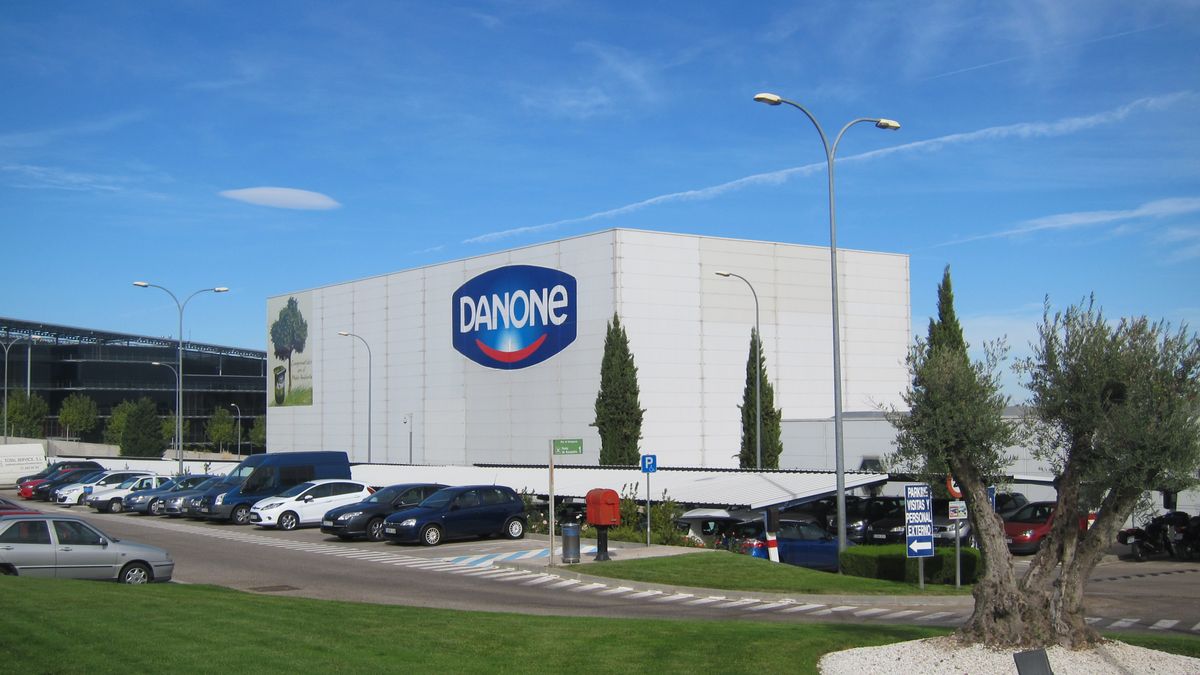
About losses and production in Poltava region
Latifundist.com: How much has the production of dairy products of "Danone Ukraine" decreased due to the closure of the factory in Kherson?
Adrian-Valentin Pascu: Half, because both plants have almost the same capacity. Despite the fact that we transferred some processes from Kherson to the existing plant in Poltava region, the reduction in production capacity is significant. Our production in Kherson was one of the most powerful dairy productions in Ukraine. And it was specialized in the production of modern dairy products issued under the brands of Rastishka, Activia, Danone & others.
Latifundist.com: Has the damage done to the company been calculated?
Adrian-Valentin Pascu: It is still difficult to assess the damage in Kherson. In addition, we have a warehouse in Kyiv damaged by a missile strike. There, losses amounted to tens of millions of hryvnias, because due to the disruption of supply chains, we also had to give away hundreds of tons of products.
Latifundist.com: What is the current situation with production in Poltava Oblast and what part of the capacity is loaded?
Adrian-Valentin Pascu: We managed to resume production to 70-80% of the pre-war level. We continue to produce dairy products under the "Prostokvashyno" brand (this is what the plant is specialized in). At the same time, I am impressed by the work of our team, which managed to transfer part of the yogurt production from the Kherson plant to this asset in just two months. You may have already seen our updated Activia and Danone on the shelves, which have remained the same inside, but have changed their design a bit. They are produced at a new site. Currently, taking into account the new projects that we have started, by the end of the year we plan to restore and even surpass pre-war production volumes.
Latifundist.com: You mentioned before that you donate dairy products to charity. Do you plan to continue holding similar promotions?
Adrian-Valentin Pascu: We transferred about 1,000 tons of dairy products. This was not a one-off charity event. This was not a one-time charity event. This indicator was achieved collectively by making charitable donations from the first days of the war in different regions of our country. In general, this is not a new direction for us. Previously, we supported socially vulnerable segments of the population with our products. Now the scale and geography have changed somewhat. We can provide dairy products to the population in those regions where we are present and where we have a logistics center. The rest of the geography is covered by our partners - various volunteer and charitable organizations. Currently there are about 30 of them. In addition to dairy products, we distribute specialized children's and clinical food, which is currently requested by 26 medical institutions of Ukraine. In Poltava region, which is our native region, we additionally support a number of educational institutions - orphanages, boarding schools and boarding schools for children with psychoneurological disorders.
Work with farmers
Latifundist.com: How much has the number of farmers you work with decreased?
Adrian-Valentin Pascu: Before the war, there were 25 partner farmers. Since the beginning of the war, when one factory went out of business, we supplied milk from 18 farms. All of them are located at a distance of 50 km from the plant. These are mainly farmers from Poltava Oblast and the regions bordering it. The "50 km" rule helps to ensure the production of fresh and high-quality milk. We were temporarily unable to supply milk from the Sumy and Chernihiv regions, which were badly affected due to destroyed roads and bridges. At the moment, we have resumed work with almost all regular suppliers.
Latifundist.com: How many partner farms are left in the temporarily occupied territories?
Adrian-Valentin Pascu: There are three suppliers working in the Kherson region, and two more in the Izyum district of the Kharkiv region. We are in constant contact with them, but we cannot supply milk from them yet. These almost four months of war have shown the benefits of a long-term partnership. After all, our partners understand how difficult it is for us. We understand the situation they are in. I have already told how our partners helped deliver our products to those who needed them (in the Kherson region), distributed their products to local communities.
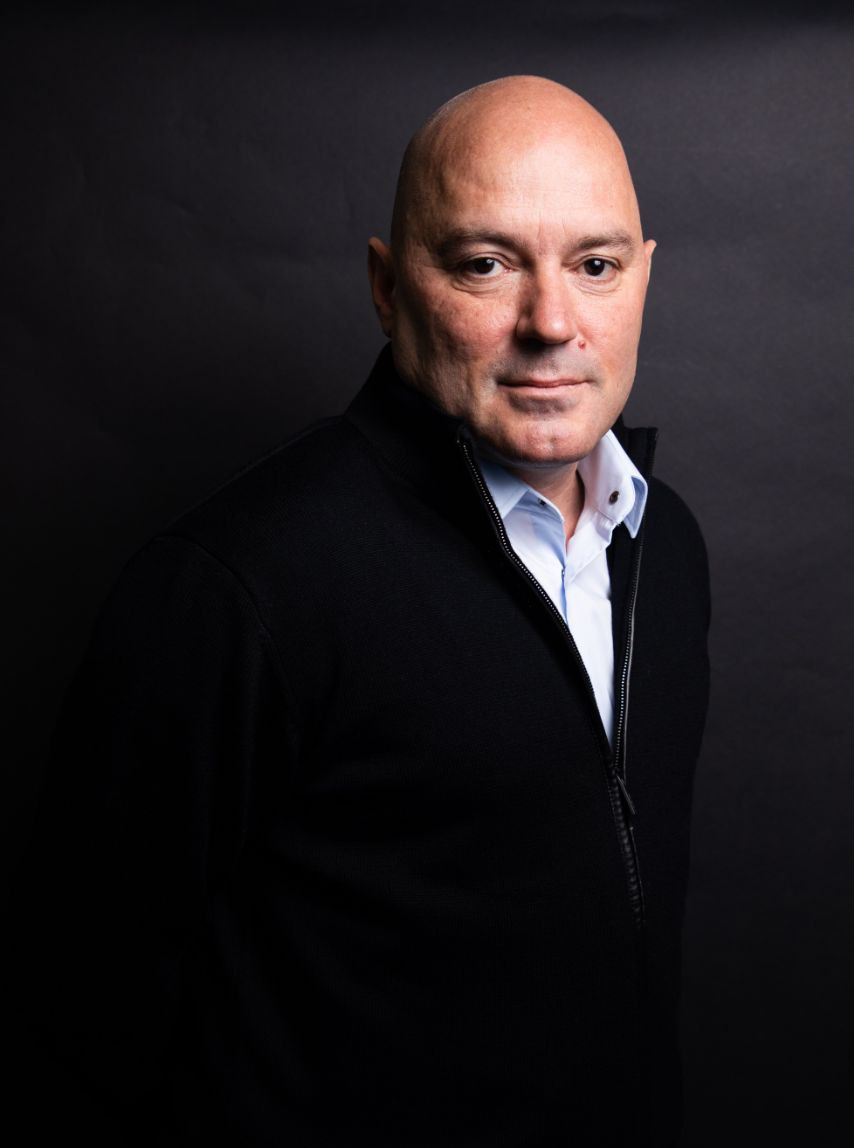
About prices for dairy products
Latifundist.com: Is it profitable to produce milk after February 24? What is currently happening to raw milk prices?
Adrian-Valentin Pascu: Before the war, we saw that milk prices, depending on the season, went up and down. However, lately it has looked like a steady increase in price. In the first month of the war, milk prices fell. In May, these levels were restored and currently we have reached the pre-war level. While the farmer works with only part of the consequences of the war. Another part of these consequences will be seen in the future. After all, the farming model is profitable when two areas are combined — growing grain and milk production. In the conditions of war, this model is unprofitable because the farmer cannot sell its grain & recompensate this model.
Latifundist.com: If we talk about the cost of milk processing, how much has it grown compared to pre-war times?
Adrian-Valentin Pascu: Costs per processing 1 ton of milk have increased. Under the current circumstances, milk production processes could not become easier and more efficient. For example, if previously safety factors had an indirect effect on productivity, now they have a significant impact. We calculated that at the factory in Poltava region, employees are forced to stay in shelters for an average of 5 hours a day due to an air alarm. Therefore, in order to maintain the pace and level of production, it was necessary to increase the number of people in production. All this is converted into additional costs. As for the price of dairy products, it is affected by the same factors as other consumer goods. Among other things, inflation and logistics costs should be mentioned. To this common factor one can add our specific context - one of the two plants was lost, which led to a critical change in the operating model and reduced profitability.
Latifundist.com: You mentioned logistics. How complicated and expensive has it become?
Adrian-Valentin Pascu: The reduction of transport channels could not but lead to the complication of logistics. Factors such as fuel price hikes, curfews, and air strikes had a significant impact on its price increase. If we talk about transportation, then the price has increased by 45%, and if we talk about warehouse logistics - by 12%. As for the latter, the price was affected by the lack of warehouses due to destruction, expensive technical support with imported warehouse equipment. Therefore, now, taking into account all these factors, we have a short window of opportunity to ship products. Another trend is the transition from more systematic and simple logistics to more complex ones, namely to increase the number of delivery points. A separate challenge for logistics is import operations. Due to the closed air and sea routes, cargoes are waiting at border crossings for up to 4-5 days. And these are also additional costs.
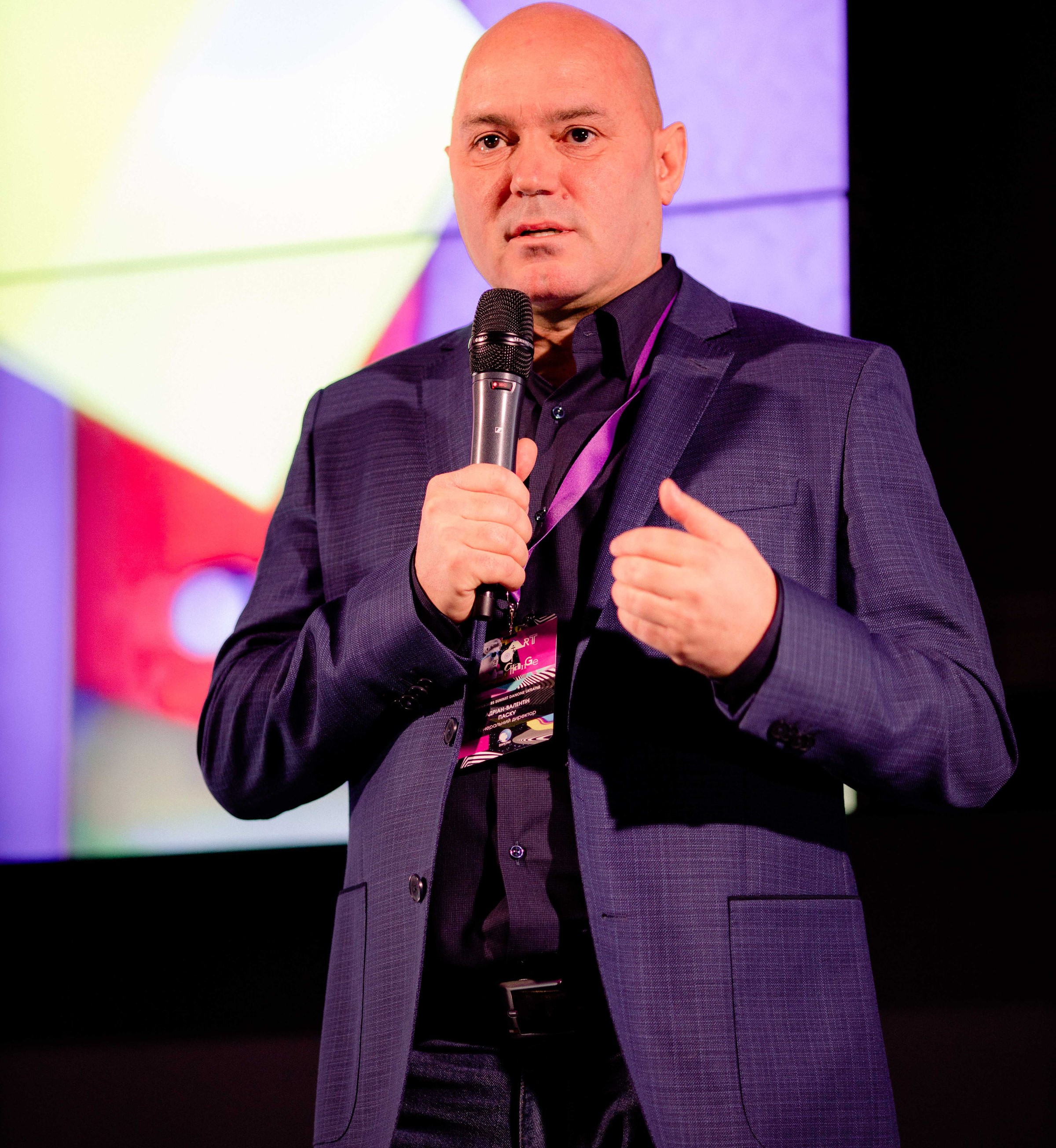
Work with retail
Latifundist.com: Has your work with retail changed since the start of the war?
Adrian-Valentin Pascu: Before the war, we worked with large distributors. During the war, we refocused on small businesses. I will not talk about the commercial component, because such a model is quite expensive for the manufacturer. But we are forced to take such a step. Otherwise, our product would not get to one or another region, to the shops of towns and villages. In the first 2-3 weeks, we received the same level of invoices, but their cost was 15-20% higher. I repeat, this is due to the costs that all participants in this chain faced. Now the situation is rolling back and we are returning to the usual models of cooperation with retail.
Latifundist.com: Before the war, Ukrainian retail chains actively developed private brands, including in the dairy line. Are they significant competitors for you?
Adrian-Valentin Pascu: In the pre-war period in Ukraine, we saw the growth of private brands, mainly in traditional categories. However, this level was far from the European level and was only 10-12%. Therefore, they are not significant competitors. And they can hardly provide the same level of safety and quality of food products as large international companies.
Latifundist.com: Before the war, Ukrainian producers complained about competition from Polish milk. Did the situation change after February 24?
Adrian-Valentin Pascu: Indeed, in the pre-war period, a certain pressure was felt, because the market share of Polish dairy products was constantly growing. It is difficult to comment on this issue now, because we have not received market data recently. One thing I can say is that such products are quite well represented on the shelves of the western region. In fact, Ukrainian farmers need support from the state. Then we will be able to compete with the Polish product. Look at the Polish market - it is subsidized there. Let's start doing it in Ukraine too. Of course, now this question is out of time, but sooner or later we will come to it. But somehow limiting or even banning Polish dairy products is a bad story.
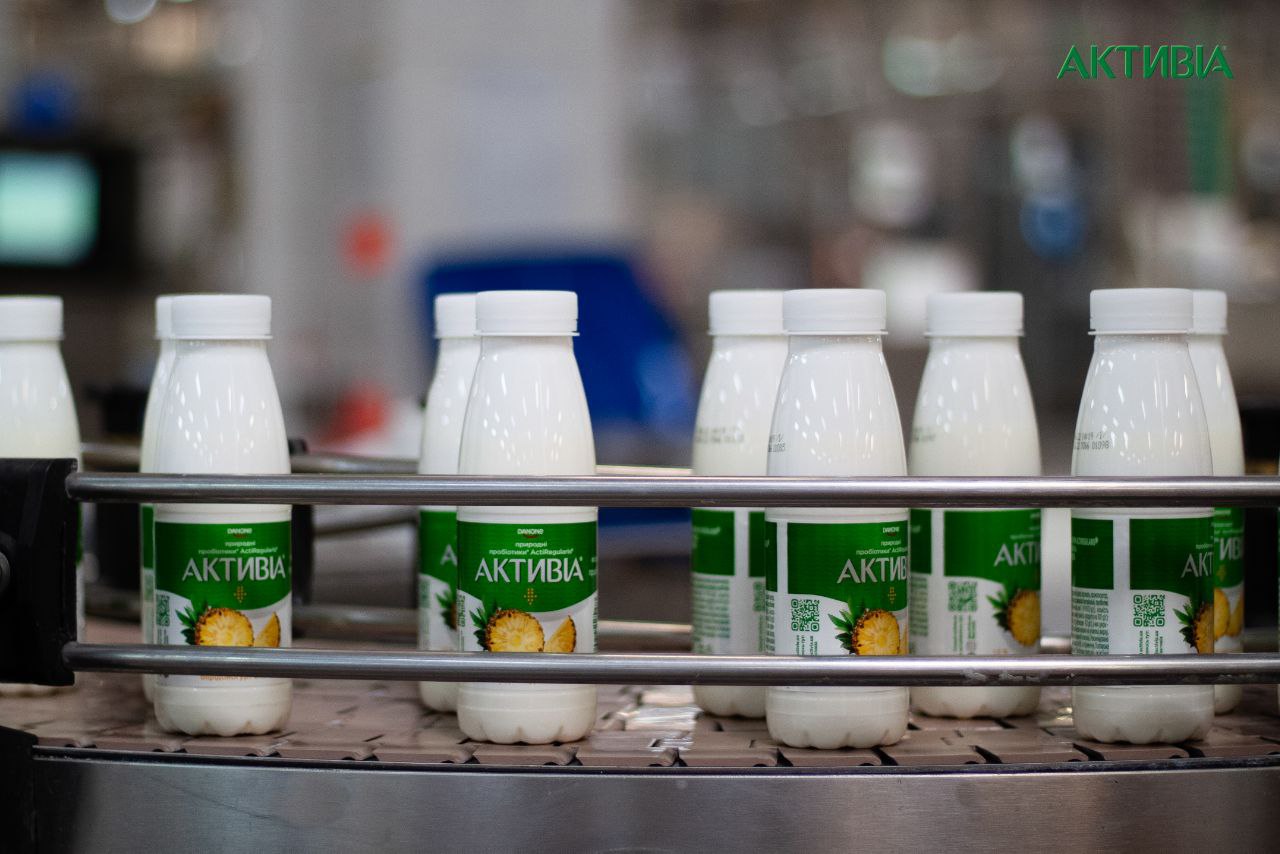
What should the dairy industry prepare for?
Latifundist.com: The war continues for the fourth month. The solvency of the population is falling. Has the demand for dairy products among the population decreased?
Adrian-Valentin Pascu: To be honest, we don't currently spend resources on market research. But not even an expert will tell you that the market has shrunk organically. The decrease in incomes and the increase in the price factor strongly affect the choice of basic food products. In addition, purchasing power was also affected by the migration factor — 7.2 million people left Ukraine. In fact, only during the last month, we can observe some recovery of consumption in those regions where there are no active hostilities. But in general, we know that the transformation of the consumer model takes place over the course of 6-9 months.
Latifundist.com: What other challenges would you foresee for milk producers this year?
Adrian-Valentin Pascu: Almost all milk producers were also grain exporters. This model allows milk producers to stay afloat. Currently, due to problems with grain export, it does not work and is unprofitable. Add to that meat prices, problems with sowing and harvesting campaigns, and a lack of investment in the livestock industry. What to prepare for? To a reduction in the number of livestock and to the fact that we will have less quality milk. Currently, the market is balanced because a large part of the population has left the country. But when the population returns, we will experience a shortage of milk and an increase in demand for it. And these factors cannot but affect the price of the product. If we take into account milk processors, the main challenges for them will be: the availability of qualified labour, energy and fuel prices, limited transport infrastructure, destroyed transport routes, export-import regulations and, as I have already said, lower purchasing power of the population.
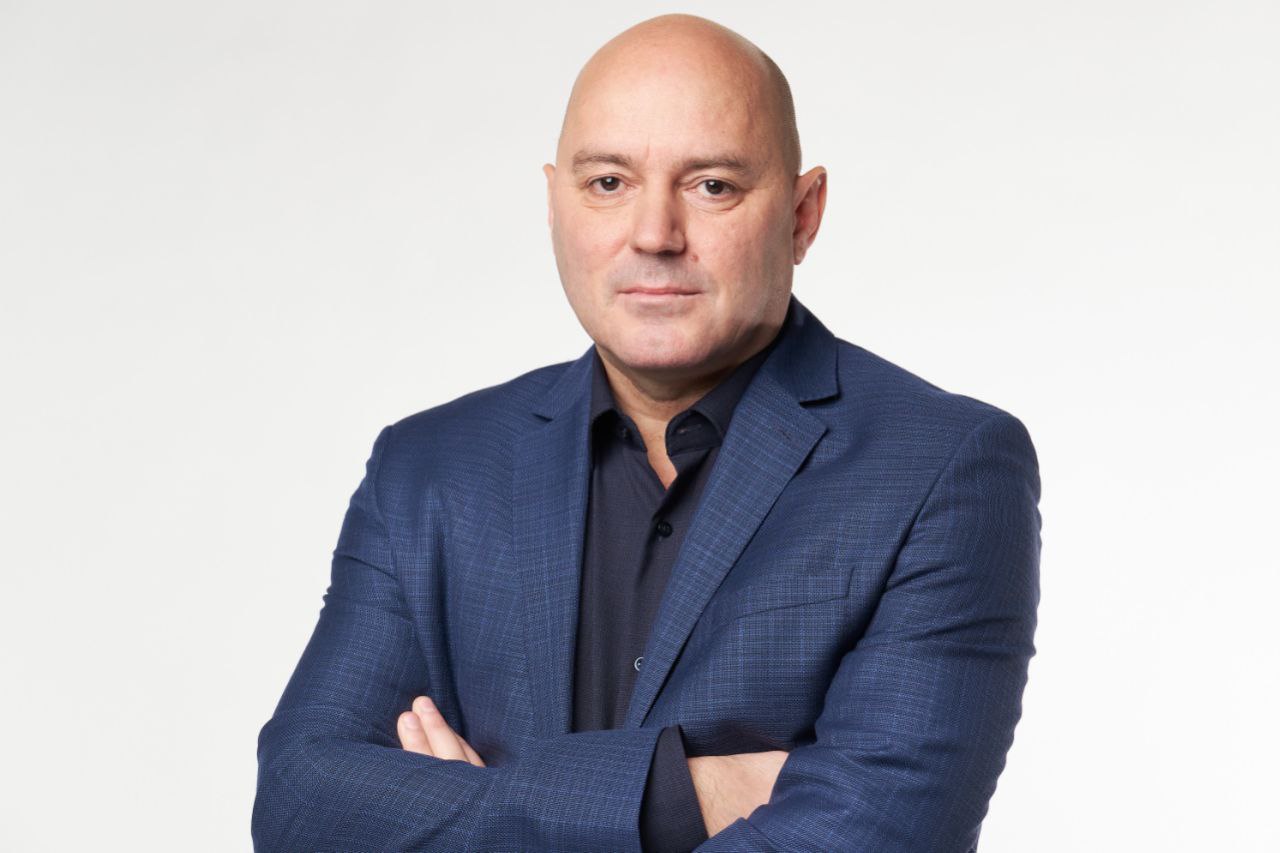
Latifundist.com: In April, Danone Group reported that it was considering possible exits from Russia. Has a final decision been made on this issue?
Adrian-Valentin Pascu: The Danone company condemns the war in Ukraine, so it has decided to significantly change its activities in Russia. First, the company stopped new investments in the country, including advertising, brand activation and consumer promotions. Secondly, it reassessed its portfolio and left only basic dairy products, baby and clinical nutrition there. Evian and Alpro brands are no longer available. And thirdly, Danone will not take cash, dividends, or profits from the Russian business. All profits received in this country will be transferred to organizations that provide humanitarian aid to Ukrainians.
Latifundist.com: Has the Danone Group not considered the issue of exiting Ukraine in connection with the hostilities?
Adrian-Valentin Pascu: Ukraine has always been an important market for Danone. Over the past 2 decades, we have invested here over UAH 1.2 billion. Even now, when millions of people have left the country due to hostilities, this market is larger than in some EU countries. Economically, it makes sense to do business here. Despite the difficult times, we must remember that they are not forever. We believe in the prosperous future of Ukraine. We are inspired by the Ukrainian team, that's why we stay here and provide business, thereby demonstrating our true commitment to Ukraine.
Kostiantyn Tkachenko, Natalia Rodak, Latifundist.com

